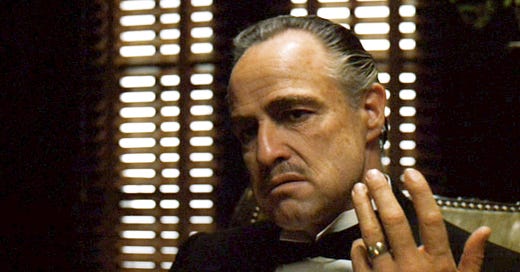The Two Types of Golden Ages
Note: this was originally published on my email-exclusive newsletter Foisted on August 14, 2022.
Lately I have been obsessed with the Golden Age of TV, which is most generously considered to be the 50s to the 70s. Many say it was the mid 50s to the early 60s. Yet when I grouped all of the shows in Alan Sepinwall's TV: The Book by decade (he discusses the history of TV by doing a deep dive into each of its greatest shows) here was the breakdown:
5 from the 50s
8 from the 60s
12 from the 70s
16 from the 80s
24 from the 90s
26 from the 00s
Of course there is no surprise that most of the shows were from the 2000s. Historians have done a fine job distinguishing the Peak TV era (from the 00s to now) from the Golden Age. But 16 of these shows were from the 80s? A time when TV notoriously was losing its centrality as the increase in TV channels weakened its hold on the collective imagination? As more youths watched MTV music videos or played Nintendo than watched Cheers?
There must be two types of Golden Ages: the Golden Age of Centrality and the Golden Age of Quality.
TV
In the 40s, cinema was the primary visual medium and radio the premiere broadcasting medium. In the 50s to 70s however TV nudged both out of the way as the focus of America. There is a possibility though that because there were so many eyeballs, the tolerance for art wasn't as high. Meanwhile in the 80s, thanks to cable, narrowcasting had begun. NBC targeted shows to yuppies who had given up the utopian dream of communes and world peace but still wanted a chance to show what good taste they had. The boomer influence may have waned in popular music, but boomers fueled the comedy boom (comedy was softer on the ears than Marshall amps were) and shows like Hill Street Blues were signs of tasteful consumption at the yuppie water cooler.
Golden age of Centrality: 1950s to 1970s
Golden Age of Quality: 2000s to today
Movies
Not only were the 30s to early 50s central because movies were the primary visual medium, but the actual shape of Hollywood was molded at this time. Before the Golden Age, cinema was primarily a cinema of attractions. The narrative thrust began in 1915 with Birth of a Nation but even as late as the 1920s, with many of the films still being silent (and many of the early sound films having terrible sound) there was a strong reliance on the circus acrobatics of Chaplin and Keaton. It wasn't until the 30s that dialogue, story and character made such a strong impression on the collective imagination.
Truthfully it seems hardest to argue that this wasn't also the Golden Age of quality as well, but it did not give us The Godfather. Taxi Driver. Beverly Hills Cop. Nashville. They Live. Empire Strikes Back. Pulp Fiction. Boogie Nights. E.T. Goodfellas. Die Hard. Raging Bull. Truthfully each decade of the Golden Age of Quality (70s to 90s) was great for different reasons. The 70s were the peak of New Hollywood. The 80s were the peak of blockbuster films that had widespread 40s-era appeal with New Hollywood-era language and mores. The 90s of course was the indie film revolution.
Golden Age of Centrality: 1930s to 1950s
Golden Age of Quality: 1970s to 1990s
Comic Books
I will never pretend to be an expert on comic books but I did have a phase a few years back. And back then I remember reading that the Golden Age of Comic Books was the 30s to the 50s. It was the era that gave us Superman, Batman and Wonder Woman. It was also at this time that superheroes were the primary focus of comic books. But this was also a time of the comics code. And many of those old issues were unabashedly WWII propaganda for kids. Plus this was not the time that gave us Spider-Man, the X Men, the Avengers, basically every single franchise and IP that currently has its superpowered grip on the American imagination currently. The 60s gave us mighty Marvel. The 70s introduced social criticism to mainstream comic books like Green Lantern as well as resuscitating Batman from its camp, pastel 60s grave. This is to say nothing about the 80s, when the X Men were at their absolute Chris Claremont peak, and comic books/graphic novels like Maus, The Watchmen and The Dark Knight Returns were literary quality masterworks.
Golden Age of Centrality: 1930s to 1950s
Golden Age of Quality: 1960s to 1980s




